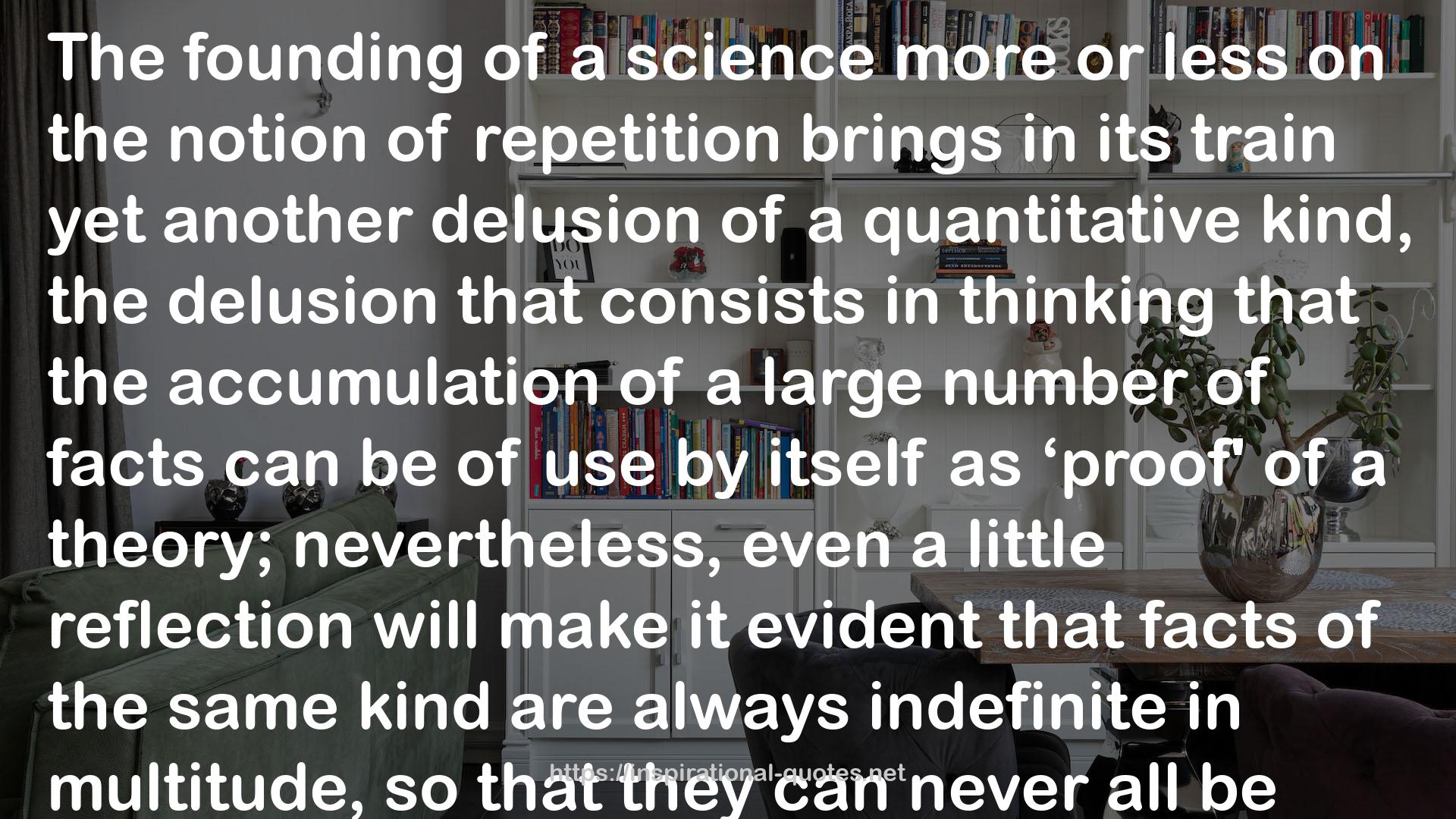" The founding of a science more or less on the notion of repetition brings in its train yet another delusion of a quantitative kind, the delusion that consists in thinking that the accumulation of a large number of facts can be of use by itself as ‘proof' of a theory; nevertheless, even a little reflection will make it evident that facts of the same kind are always indefinite in multitude, so that they can never all be taken into account, quite apart from the consideration that the same facts usually fit several different theories equally well. It will be said that the establishment of a greater number of facts does at least give more ‘probability' to a theory; but to say so is to admit that no certitude can be arrived at in that way, and that therefore the conclusions promulgated have nothing ‘exact' about them; it is also an admission of the wholly ‘empirical' character of modern science, although, by a strange irony, its partisans are pleased to accuse of ‘empiricism' the knowledge of the ancients, whereas exactly the opposite is the truth: for this ancient knowledge, of the true nature of which they have no idea whatever, started from principles and not from experimental observations, so that it can truly be said that profane science is built up exactly the opposite way round to traditional science. "
― René Guénon , The Reign of Quantity and the Signs of the Times
